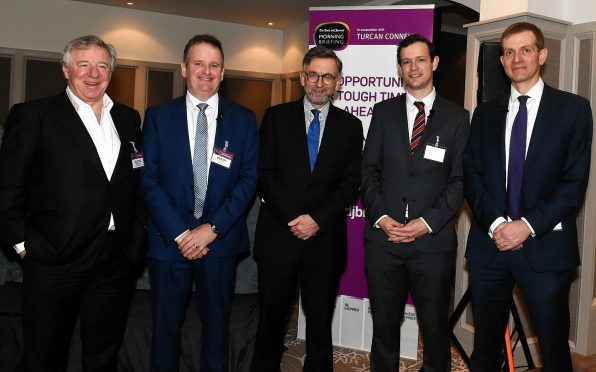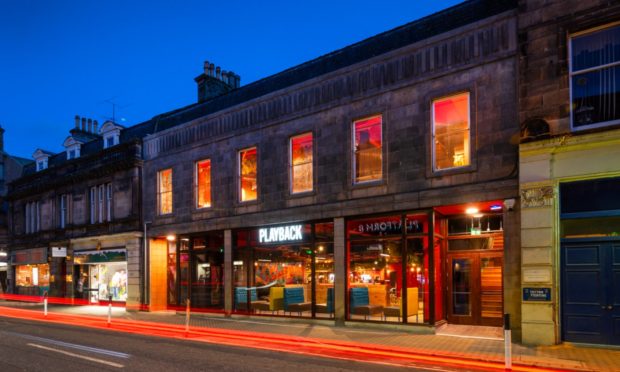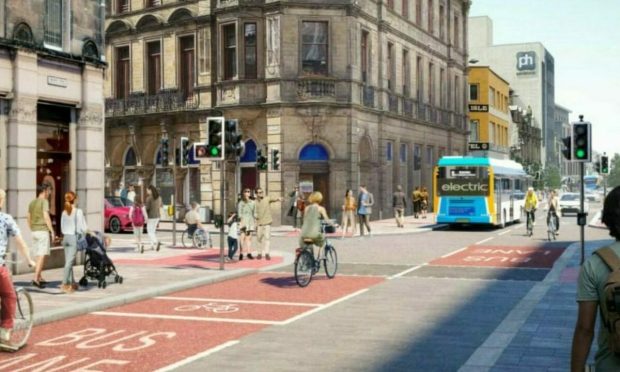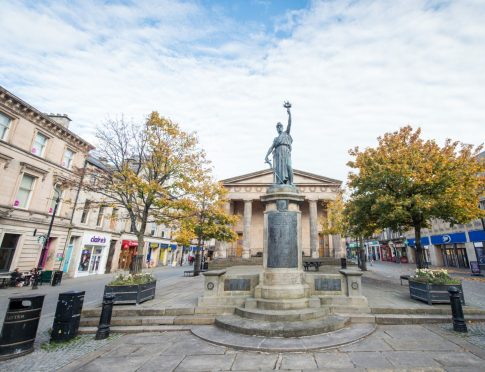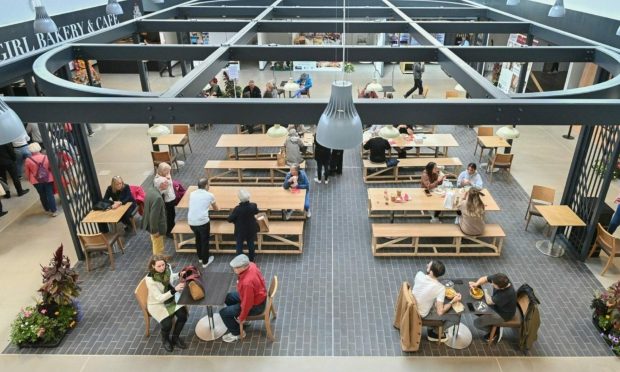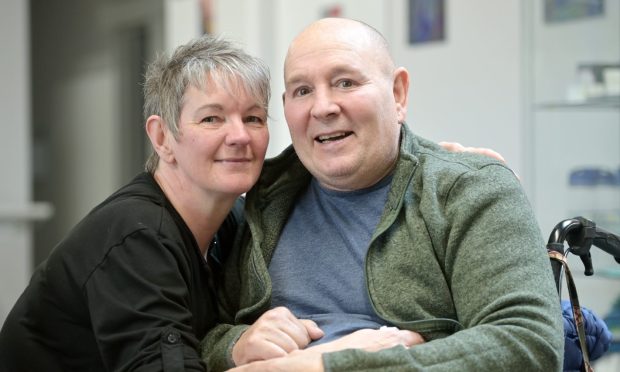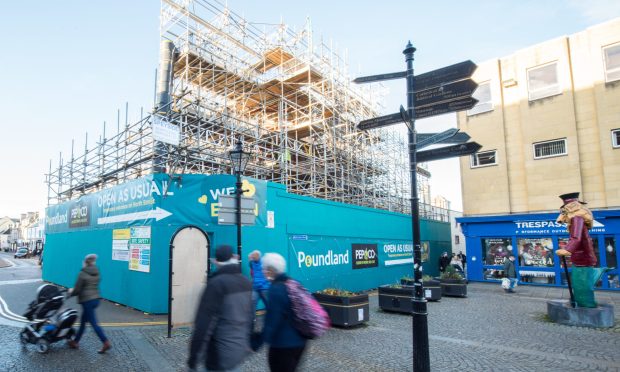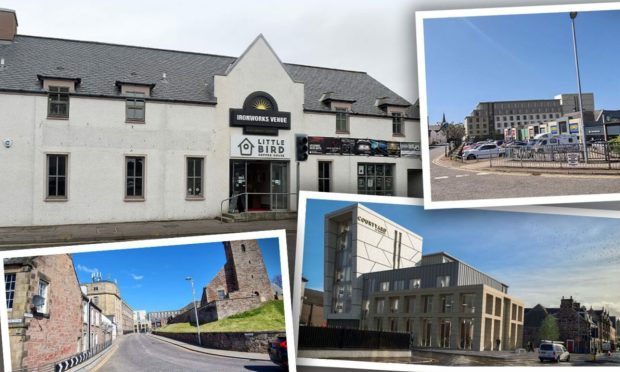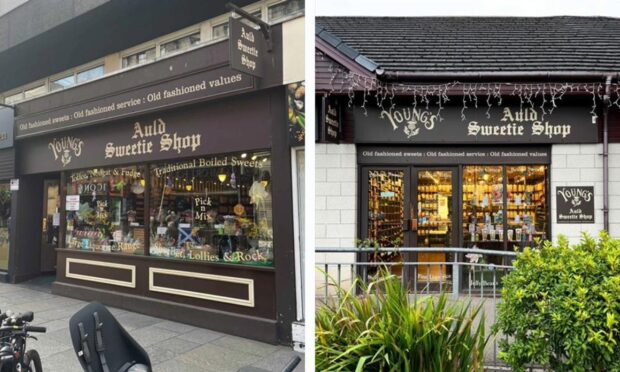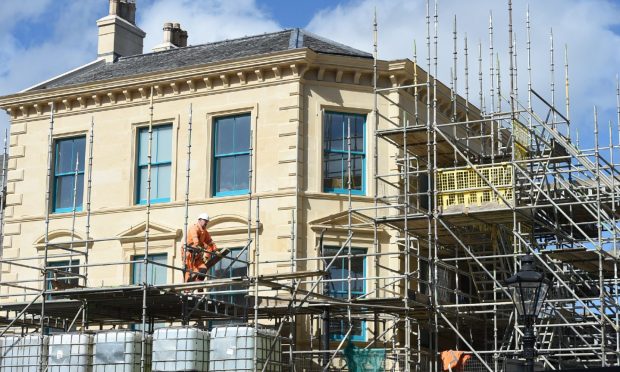Leading north-east business man has predicted there is “no chance” there will be a second referendum on Scottish independence taking place in the next two years.
Martin Gilbert, the chief executive of Aberdeen Asset Management, further advised attendees at a business breakfast in the Granite City yesterday to “relax” over the prospect of a second referendum, as there will not be enough information for voters in Scotland to make a choice in that time frame.
This came on the day first minister Nicola Sturgeon submitted a letter to Theresa May formally requesting the powers for a referendum. The timescale, backed by Scottish Parliament for the vote to take place, is aimed between autumn 2018 and spring 2019.
Mr Gilbert was speaking as a panellist at the Press and Journal Morning Briefing, in association with Turcan Connell, at the Marcliffe Hotel yesterday.
The theme of the event was “opportunity or tough times ahead?” and also featured Aberdeen South MP Callum McCaig, the SNP’s energy spokesman at Westminster; Alexander Garden, partner and head of tax at Turcan Connell and Derek Leith, senior partner at EY. The key note speaker was Lord Dunlop, Scotland Office minister.
Updating the audience on the UK Government’s negotiations with Europe, just a day after the prime minister triggered article 50, Lord Dunlop said the UK’s Brexit negotiators were looking to establish a “deep and special partnership with the EU” at the end of the negotiations.
“We want to agree with them the most ambitious and comprehensive free trade agreement ever,” he said.
“For businesses we want to make sure that as the negotiations proceed they are fair and orderly. We think it is important that we minimise disruption. And this is something that is not just of benefit to the UK but to the EU as a whole.
“It is very important to provide business with legal certainty.
“One of the things we will be doing is to convert EU law into UK law, so in the day after exit the legal position is the same as it was the day before. Because this is about avoiding cliff edges.”
He added: “I am optimistic we can have successful negotiations.
“Let’s remember, the UK represents 16-17% of the EU economy. We are absolutely integral to the European ecosystem.”
He said he believes there are “very encouraging” signs that negotiators will find an early agreement on the status of EU nationals living in the UK, which will start the process off “on the right foot”.
He also insisted on the importance of the UK and Scottish Government presenting a “united front” in the negotiations.
He said: “There has been a lot of debate about the differences between the UK Government and the Scottish Government.
“Of course, it is true to say we will not agree on everything.
“But I actually think there is a lot of common ground in what the Scottish Government is seeking and the UK Government is seeking.”
He said both administrations wanted the “freest and most frictionless” trade deal with the EU single market as well as “an immigration system that meets our economic needs whether it is the seasonal fruit pickers who are so important in Angus or the brightest and best research graduates”.
He said that “significant new powers” will also be handed to the Scottish Parliament when they are repatriated from Brussels.
“But as those come back it will be very important we discuss and agree with the Scottish Government what common frameworks we need to put in place to ensure our UK home market continues to work effectively, that we do not put up new barriers to trade in the UK market,” he added.
“So over the coming weeks what we want to do is intensify our discussions with the Scottish Government on all of these matters. Because if we are able to offer that united front then we stand the best chance of getting that ambitious deal we want.”
In a question and answer session, audience member Pat Machray, chairman of farming co-operative ANM Group, asked Lord Dunlop and Mr McCaig if the UK and Scottish Governments were making contingency plans in the case that the UK did not strike the deal it was currently hoping for.
Mr McCaig said a second independence referendum was the Scottish Government’s contingency plan.
He said: “These things will be negotiated on our behalf by the UK government. We will have some input into them, but judging by the fact no agreement has been reached and as far as I can tell not a single one of the proposals put forward, not just by the Scottish Government but the Welsh and Northern Ireland governments have been officially taken on board.
“Maybe the contingency plan is to say actually independence is the correct way and that will be a better deal.
“What we are suggesting is we should have that choice.”
Speaking of the second referendum, Mr Gilbert said: “My view is there is no chance of a referendum during the next two years happening because no one would know what they are voting for.
“Nothing is going to happen until two and a half, three years – if it does happen.”
He said his firm, Aberdeen, would remain neutral on the outcome of the referendum as it was the last time.
“It is never a good thing to interfere with any country’s politics in my opinion. I would relax about it.”
He added: “There is opportunity still here to grow a business in Scotland.
“As far as Brexit is concerned, we all live in uncertain times. The key thing I always say is just manage what you can manage – don’t try to second guess or worry about what is outwith your control.”
